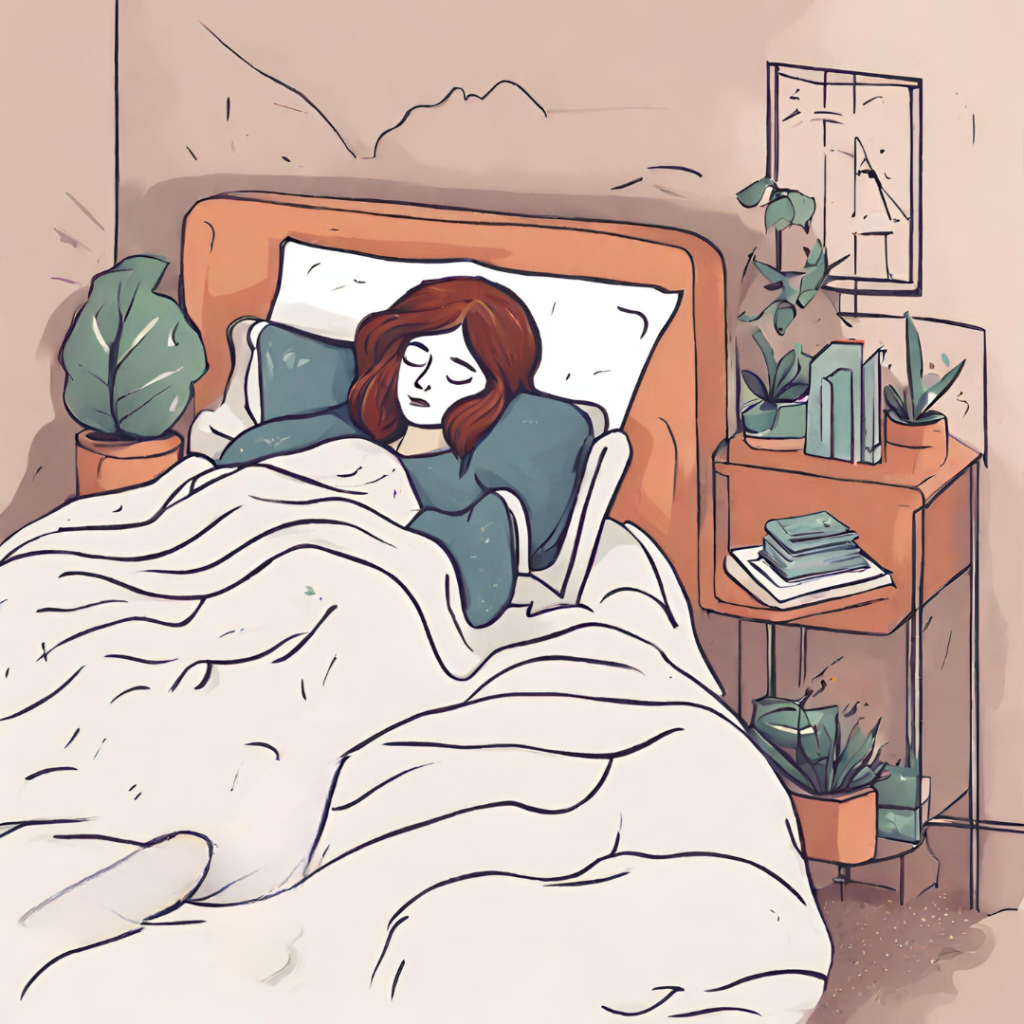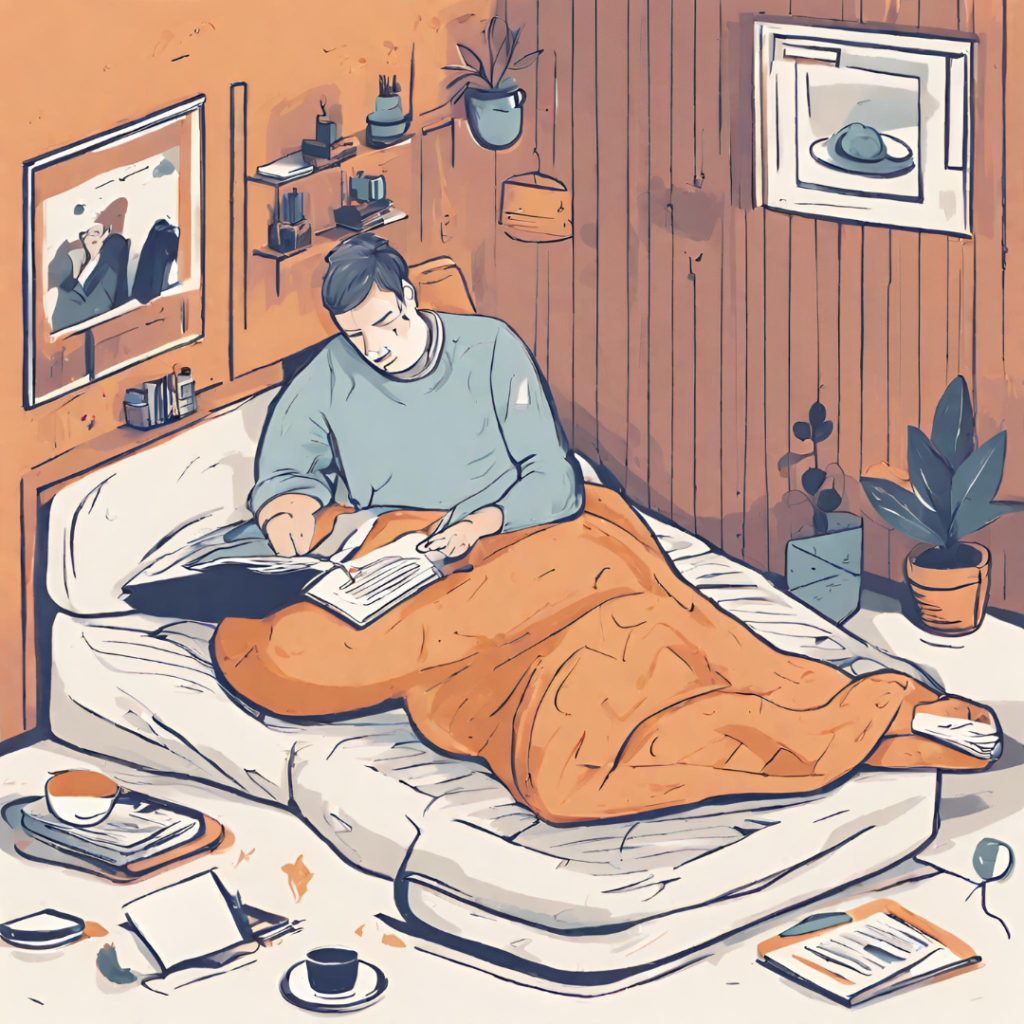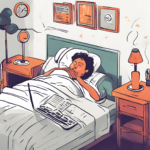In the bustling rhythm of modern life, mental health has emerged as a paramount concern. Amidst the plethora of strategies to bolster our psychological well-being, the humble nap is often overlooked. However, emerging research suggests a profound connection between napping and mental health. This article unfolds this intricate relationship, offering insights into how these brief periods of rest can significantly impact our emotional and cognitive states, emphasizing the importance of napping for mental well-being.
The Mental Health Landscape
Mental health, an integral component of overall well-being, influences our emotions, behaviors, and cognitive functions. The World Health Organization (WHO) defines it as a state of well-being in which individuals realize their potential, cope with the normal stresses of life, work productively, and contribute to their community. However, the increasing pace of modern life, along with its accompanying stressors, has placed mental health under the spotlight. Anxiety, depression, and stress-related disorders are on the rise, prompting a quest for accessible strategies to support mental wellness. Napping, often overlooked, emerges as a simple yet effective tool to enhance mental health, playing a crucial role in promoting mental well-being.
Napping: A Brief Overview
Napping is a short sleep usually taken during the day. Contrary to common misconceptions, it’s not a practice exclusive to children or a sign of laziness in adults. Historically, many cultures have embraced the siesta or midday rest, recognizing its rejuvenating effects. Naps can vary in length: from the 10-20 minute “power nap” that enhances alertness and motor skills, to the 60-90 minute “full cycle nap” that includes REM (Rapid Eye Movement) sleep, beneficial for problem-solving and creativity. Understanding how to nap effectively can turn this simple rest into a powerful ally for nurturing mental health and well-being.

The Sleep-Mental Health Nexus
The connection between sleep and mental health is bidirectional and complex. Sleep disturbances, including insomnia, are common symptoms of many mental health disorders. On the flip side, chronic sleep deprivation can lead to or exacerbate mental health issues. Napping, when used appropriately, can help alleviate sleep deficits and provide a mental reset, offering a buffer against the negative psychological effects of poor sleep, thereby bolstering mental well-being.
Napping’s Impact on Mood
Mood regulation is a critical aspect of mental health. A short nap can significantly lift one’s spirits, combating feelings of sleepiness and fatigue that often lead to irritability and stress. For those with mood disorders like depression or bipolar disorder, napping can provide a much-needed emotional respite, though it’s crucial to balance nap length and timing to avoid disrupting nighttime sleep patterns, which can worsen mood symptoms. This highlights the role of strategic napping in managing mental health.
Napping and Cognitive Function
Cognitive functions, including memory, attention, and executive function, are cornerstones of mental health. Napping has been shown to boost cognitive performance, particularly after periods of sleep deprivation. A brief nap can enhance memory consolidation, learning, and decision-making, which are often compromised in mental health conditions. For individuals undergoing cognitive-behavioral therapies or other forms of psychological treatment, a well-timed nap might enhance the benefits of these interventions, thus playing a pivotal role in napping for mental well-being.
Stress Relief and Relaxation through Napping
Stress is a ubiquitous challenge, and chronic stress is a common precursor to mental health issues. Napping provides an opportunity for the body to enter a relaxed state, away from the stressors of the environment. This restful period can reduce cortisol levels, the body’s primary stress hormone, and activate the parasympathetic nervous system, promoting relaxation and recovery, thereby contributing to mental health through napping.

The Double-Edged Sword of Napping in Mental Health
While napping offers numerous benefits, it’s not without potential drawbacks. For individuals with insomnia or other sleep disorders, daytime napping might perpetuate a cycle of poor nighttime sleep. Moreover, excessive or poorly timed naps can lead to sleep inertia, a state of grogginess and disorientation. It’s important for those with mental health conditions to consult healthcare professionals to determine the best napping strategy that aligns with their treatment and sleep patterns, ensuring the optimization of napping for mental well-being.
Tailoring Napping to Individual Mental Health Needs
Personalizing napping habits is essential for maximizing benefits. Factors like nap duration, timing, and individual sleep needs play a role. Short naps are generally recommended for a quick boost in alertness, while longer naps might be more beneficial for those requiring deeper cognitive restoration. Understanding one’s own mental health needs and sleep patterns is crucial for developing an effective napping strategy for mental health enhancement.
Napping in a Therapeutic Context
Incorporating napping into a broader therapeutic approach can be beneficial. As a form of self-care, napping can complement other mental health strategies, serving as a stress-reduction technique or a coping mechanism during challenging times. Mental health professionals can provide guidance on how to integrate napping effectively into treatment plans further highlighting the importance of napping in mental health management.
The Future of Napping and Mental Health Research
There is a growing interest in understanding the relationship between napping and mental health. Future research will likely shed more light on the optimal conditions for napping, its role in various mental health conditions, and its long-term effects. This knowledge will be invaluable for clinicians and individuals alike, informing best practices and helping people harness the power of naps to support mental well-being, underlining the potential of napping as a tool for mental health care.
Conclusion: Napping for Mental Well-being
The exploration of napping and mental health unveils a promising avenue for enhancing psychological well-being. By acknowledging the intricate relationship between rest and mental health, we open doors to accessible, effective strategies for managing stress, mood, and cognitive function. As research progresses, the humble nap stands out as a powerful ally in the quest for mental resilience and well-being, offering a simple yet profound means to rejuvenate, renew, and restore our minds perfectly encapsulating the concept of napping for mental well-being.


